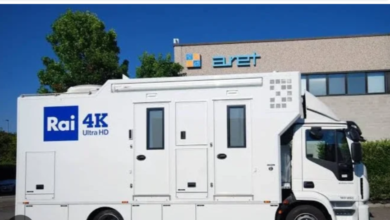Streamlining Supply Chains: A Comprehensive Guide to IT Services in Logistics

In the dynamic landscape of modern business, effective supply chain management is crucial for success. As industries evolve and globalize, the demand for efficient logistics processes has never been higher.
In this comprehensive guide, we will delve into the role of Information Technology (IT) services in streamlining supply chains, exploring the various technologies and strategies that contribute to enhanced efficiency and competitiveness.
The Evolution of Supply Chain Management
Historically, supply chain management involved manual processes and relied heavily on human labor. With the advent of technology, particularly in the field of IT, the landscape has undergone a profound transformation.
Businesses are now leveraging advanced IT services to automate and optimize various aspects of their supply chains.
Early IT Interventions in Logistics
The integration of computers in logistics operations was one of the earliest IT interventions.
This involved the use of basic software to manage inventory, track shipments, and handle basic record-keeping tasks. While revolutionary at the time, these early systems were limited in their capabilities.
Rise of Enterprise Resource Planning (ERP) Systems
The evolution of IT in logistics took a significant leap forward with the development of Enterprise Resource Planning (ERP) systems. These comprehensive software solutions integrated various business processes, including supply chain management, into a unified platform.
ERP systems enabled real-time data sharing across different departments, leading to improved coordination and decision-making.
Key Components of IT Services in Logistics
To understand how IT services streamline supply chains, it’s essential to examine the key components that play a pivotal role in enhancing efficiency.
1. Inventory Management Systems
One of the fundamental challenges in supply chain management is maintaining optimal inventory levels.
Visit this site for IT services that offer sophisticated inventory management systems that utilize data analytics and automation to optimize stock levels, reduce carrying costs, and prevent stockouts.
2. Warehouse Management Systems (WMS)
Efficient warehouse management is critical for a streamlined supply chain. WMS, powered by IT services, provides real-time visibility into warehouse operations.
This includes inventory tracking, order fulfillment, and warehouse optimization, leading to improved accuracy and reduced operational costs.
3. Transportation Management Systems (TMS)
Optimizing transportation routes and managing logistics networks is made easier with TMS.
IT services enable TMS to analyze data on shipping routes, carrier performance, and transportation costs. This results in cost-effective and timely deliveries, enhancing overall supply chain efficiency.
4. Supply Chain Analytics
Data analytics has emerged as a game-changer in supply chain management. IT services facilitate the collection, analysis, and interpretation of vast amounts of data, providing valuable insights for decision-making.
Predictive analytics, in particular, helps in forecasting demand, identifying potential disruptions, and optimizing inventory levels.
5. Blockchain Technology
Blockchain is gaining traction in logistics for its ability to enhance transparency, traceability, and security. By utilizing a decentralized and tamper-resistant ledger, blockchain ensures the integrity of data throughout the supply chain.
This technology is particularly beneficial in verifying the authenticity of products and preventing fraud.
IT Services for Collaboration and Communication
1. Collaborative Platforms
Collaboration is a key factor in supply chain success. IT services offer collaborative platforms that enable seamless communication and information sharing among supply chain partners.
These platforms enhance visibility, coordination, and responsiveness, leading to a more agile and adaptive supply chain.
2. Cloud Computing
Cloud computing has revolutionized the way businesses store, access, and share data. In logistics, cloud-based solutions facilitate real-time collaboration and data accessibility from anywhere in the world.
This is particularly valuable for global supply chains with multiple stakeholders in different locations.
Overcoming Challenges with IT Solutions
Despite the numerous benefits IT services bring to logistics, there are challenges that organizations may face in their implementation. Understanding these challenges is crucial for devising effective solutions.
1. Integration Issues
Integrating IT solutions seamlessly into existing systems can be a complex process. Legacy systems may not easily sync with modern IT services, requiring careful planning and execution during the integration process.
2. Data Security Concerns
As supply chains become increasingly digitized, the risk of cybersecurity threats grows. Protecting sensitive data and ensuring the security of IT systems is paramount. Organizations must invest in robust cybersecurity measures to safeguard their supply chain operations.
3. Cost Considerations
While IT services offer long-term benefits, the initial investment can be substantial. Organizations must carefully evaluate the costs and benefits of implementing IT solutions, considering factors such as scalability and potential returns on investment.
Future Trends in IT Services for Logistics
As technology continues to advance, the future holds exciting possibilities for IT services in logistics. Here are some emerging trends that are likely to shape the future of supply chain management.
1. Internet of Things (IoT) Integration
The integration of IoT devices in logistics will provide real-time tracking and monitoring of shipments.
Sensors on products, vehicles, and equipment will enable stakeholders to gather valuable data, leading to more informed decision-making and enhanced visibility throughout the supply chain.
2. Artificial Intelligence and Machine Learning Advancements
AI and machine learning will become even more sophisticated, allowing for predictive analytics and autonomous decision-making in logistics.
Advanced algorithms will optimize supply chain processes, from demand forecasting to route planning, further reducing costs and improving efficiency.
3. Autonomous Vehicles in Logistics
The deployment of autonomous vehicles, including drones and self-driving trucks, is poised to revolutionize last-mile delivery and transportation.
These vehicles can operate 24/7, reducing delivery times and costs. However, regulatory and safety considerations will need to be addressed for widespread adoption.
4. Sustainable Supply Chain Practices
As sustainability becomes a focal point for businesses, IT services will play a crucial role in implementing and monitoring sustainable practices in the supply chain.
This includes optimizing transportation routes to reduce emissions, minimizing packaging waste, and promoting ethical sourcing.
Conclusion
In conclusion, IT services have become indispensable in the quest to streamline supply chains and enhance logistics efficiency. From inventory management and warehouse optimization to collaborative platforms and emerging technologies like blockchain, organizations have a plethora of tools at their disposal.
As businesses navigate the complexities of a globalized market, the strategic integration of IT services remains a cornerstone for success in the ever-evolving world of supply chain management.



